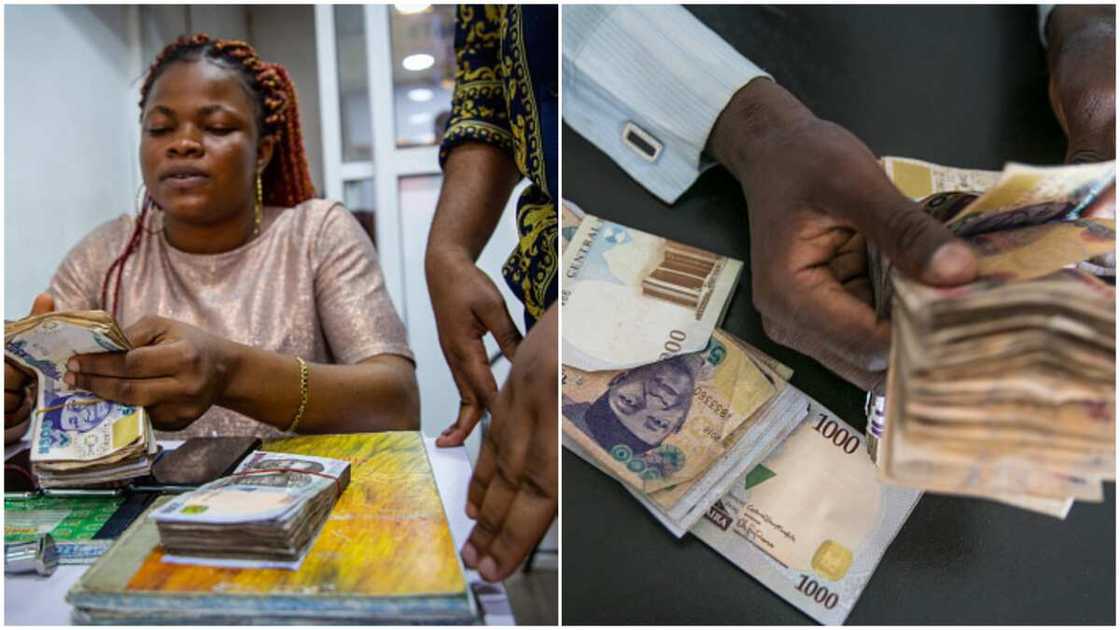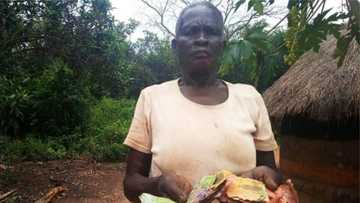Nigerians Once Spent Salt, Bottles As Money, 6 Other Interesting Facts About Country’s Currencies
The relative history of money as an exchange of value speaks about the society that uses it, and Nigeria is no different.
PAY ATTENTION: Legit.ng is on a mission to support vulnerable children of Calabar – join the initiative on Patreon, let’s change more lives together!
It would be interesting to note that before paper notes and coins came into being, Nigeria used different things to pay for goods and services.

Source: Getty Images
In this report, with resources from CBN, Legit.ng will be looking at seven facts about the evolution of money in the country.
1. We once spent salt
As funny as this sounds, it is actually true. According to the Central Bank of Nigeria (CBN), items like salt, beads, and bottles, among others were used as money during the pre-colonial era.
2. Shilling and Pence, the first major currency
The coins were managed by the Bank of England and distributed through a private entity. This continued until 1912.
3. The highest banknote and coin from 1912 to 1959
Like most West African countries, the highest banknote in Nigeria was one pound. The shilling on the other hand was the highest coin denomination.
4. 1959 heralded Nigeria’s first banknotes
Despite the fact that CBN issued Nigerian banknotes in 1959, it was until 1962 that the currency reflected that the country is a republic. Before then, it used to have the Federation of Nigeria inscribed on it.
5. The era of N1, N5, and N10
Nigeria’s banknotes came in three denominations of N1, N5, and N10 on July 2, 1979. In 1977, the N20 note was issued.
6. N20 polymer came in 2007
On February 28, 2007, the N20 polymer was issued. Other notes including the N1 and 50kobo coins wore new designs.
7. N50 became a polymer
As a way to celebrate the country’s 50th independence anniversary, N50 was also made into polymer on September 29, 2010. N100 note was redesigned.

Read also
Fashola shares beautiful photos of newly built bridge in Cross River, it links Nigeria to another country
PAY ATTENTION: Download our mobile app to enjoy the latest news update
Naira is doing well
Meanwhile, Legit.ng earlier reported that Garba Shehu, a special adviser to the president on media and publicity, on Sunday, May 30, stated that given the circumstances Nigeria is in, the naira is in the best possible health.
The presidential spokesperson who made the disclosure on Channels TV's Sunday Politics claimed that only the Nigerian economy is recording positive growth in Africa.
Shehu made the comments in response to statistics on how the economy fared in 2015 compared with 2021.
Source: Legit.ng



